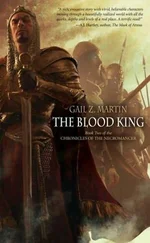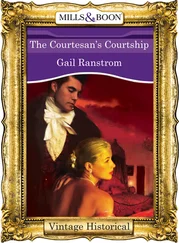What Alek’s financial situation was I did not know, and it never occurred to me to ask. That is to say, I knew that sometimes he had money, because then he took taxis and threw money around at Fink’s Bar, and that shortages of cash would last until he got fed up and he would go to work with Yoash. Further details I learned only later, after he left, and after the repulsive Hyman came to inform me of my legal husband’s intentions and of my rights: As of this moment, Alek, even if he so desired, is unable to pay child support, you have to understand this, and since he is abroad in any case, my advice to you is not to enter into a fight because you won’t get anything out of it. At the time, as you probably remember, I advised you to talk to him in order to secure your position, but there’s no point in crying over spilt milk now. Under the circumstances, and if we’re already talking, have you got some arrangement for the child already? They’re looking for an extra girl to work in our office in the mornings, and if you’re interested I’ll be happy to recommend you. Just take into account that you’ll have to learn to type, because presumably they didn’t teach you to type at school, ha ha ha.
I didn’t understand if Hyman had been sent by Alek or if he had appointed himself to the task, if he was trying to represent me or my husband, and the truth is that I wasn’t interested, either. At the end of all the talk he informed me that Alek had paid a deposit for the apartment in which I was living, and that I could go on living there as long as I wished. Hyman also tried to hint that it would be a good idea to “regularize the situation” and draw up a written agreement, but neither then nor in the future did I have the faintest desire for any kind of “written agreement.” Perhaps simply because there was no need for it, perhaps because a contractual procedure of this kind didn’t fit in with my lofty standards and exalted love.
Over the years, partly through Hagar, I discovered that Alek was not a complete beggar, at least not in terms of his home. From bits of stories I pieced together it transpired that Jenia, Marina’s husband, evidently a capable man, had had a hand in some textile business in Poland, and he had not only made a profit but also succeeded in getting the money out of the country, and afterwards, in France, he had made more. I don’t know if Alek took money from him, perhaps he had managed to save something during the period when he was a student with a job in Paris, perhaps he received money from the state as a new immigrant to Israel. The important thing from my point of view is that even before he enlisted in the army he acquired the apartment on Usha Street and renovated it, and it was in the course of the renovations, by the way, that he met Yoash. The quarter of Nachlaot had not yet become fashionable then, prices were relatively cheap, and as a result of all of the above it came about that I and my daughter had, and still have, a home. This fact was not yet known to me when I decided to have the baby, but even without it, I can’t deny that I made my leap of faith with a safety net spread out beneath me. A safety net consisting of parents, I mean, and with parents like mine there was no real possibility that I would turn into an abandoned-pregnant-maidservant-heroine. Even in my mental state of adolescent melodrama, I think that I knew this.
A few words about my parents’ situation. After leaving the kibbutz we lived austerely for a while, without property or savings, on the salaries of a nurse and an officer in the standing army. The change came two years later, when my father left the army and started to exploit the connections he had made on various sales and acquisitions missions in order to broker private arms deals.
Connections are Benjy’s strong point. Connections and a kind of greedy lust for life, expressed among other things in overpowering energy and dynamic industriousness. My father, Benjamin Weber, is a man whose sense of responsibility borders on megalomania, who slaps everyone on the back and looks after everyone. “Everyone” came to Talush’s bat mitzvah and he went to “everyone’s” celebrations, flashing them, me, all of us, the cheerful, bright blue looks of a tanned, wrinkled little boy. After the Yom Kippur War, and again after the Labor Party lost the elections, and after his heart attack, and when Bibi Netanyahu rose to power — he seemed to have emptied out, with his shirt empty at the shoulders, to have turned into a nostalgic whiner who had lost his back-slapping cheerfulness and his natural ability to fix things with a couple of phone calls. But whenever we thought that old age had finally caught up with him, he pulled himself together, jumped back into the saddle and returned to his hail-fellow-well-met ways.
What is important here is that in the winter of ’72 my parents were already “doing well,” as they say, that afterwards they did even better, and that even if this were not the case, they would never have abandoned their firstborn daughter to the streets or the social services. Would I have persisted in my madness and my pregnancy without this safety net? Not having been put to the test, I don’t know, but the bottom line is: I believe that I would have.
ONCE I’M TALKING ABOUT MY PARENTS
Once I’m already talking about my parents, I may as well mention two shameful events connected to them which took place during my pregnancy. When I was in my fourth month, it was in December, I dropped into my mother’s clinic, she worked then in the old Sha’arei Tzedek Hospital, and informed her of my situation — Hello, mother, how are you? I got married in a fictitious marriage and now I’m pregnant.
To the best of my recollection I didn’t plan this visit in advance, I didn’t plan it and I didn’t decide on it, but on my way home from work, I simply went up to see her as if on a whim. From the heights of my maturity today I can admit that I was miserable and frightened and I needed a mother, but then I didn’t admit this even to myself, and armored myself instead in a kind of conceited, annoying calm. My mother, in spite of all the advice she read in women’s magazines, my mother, a veteran nurse, with a table of the principal nutrients on the wall over her head, and a table of calories under the glass on her desk, my mother couldn’t find a word to say. She simply sat there speechless, and I can’t say that I blame her. I blew in out of nowhere, impermeable and intoxicated with myself, albeit in need, desperately in need, but not of her and her touch — of him, who made any other contact impossible.
That same evening, in the street below, someone put his hand on the horn of his car and kept it there. And when our neighbour Miriam poked her head out to complain, and Alek emerged from his room, I saw my father’s white Alfa Romeo from the kitchen window.
“It’s my father,” I said quietly, “I suppose he wants me to go down.” Chivalrous by education and principle, Alek offered to go down with or without me. Judging by his tone it sounded as if there was nothing out of the ordinary in the street scene taking place below, or in the one that was about to take place. As if this was the way of the world and the way of fathers and everybody knew it. “Put on a coat at least,” he said, mildly amused, “here, take mine,” and he draped it round my shoulders.
Wrapped in Alek’s coat, while its owner took up a position at the window, I went down to my father. When I opened the gate for a moment his eyes were at the level of my stomach, and he immediately jumped out of the car. “Get in,” he shot at me, “we’re going home, first thing tomorrow morning your mother’s taking you to Zvi’s clinic.”
“It’s too late.”
“Don’t you tell me that it’s too late.”
Читать дальше












